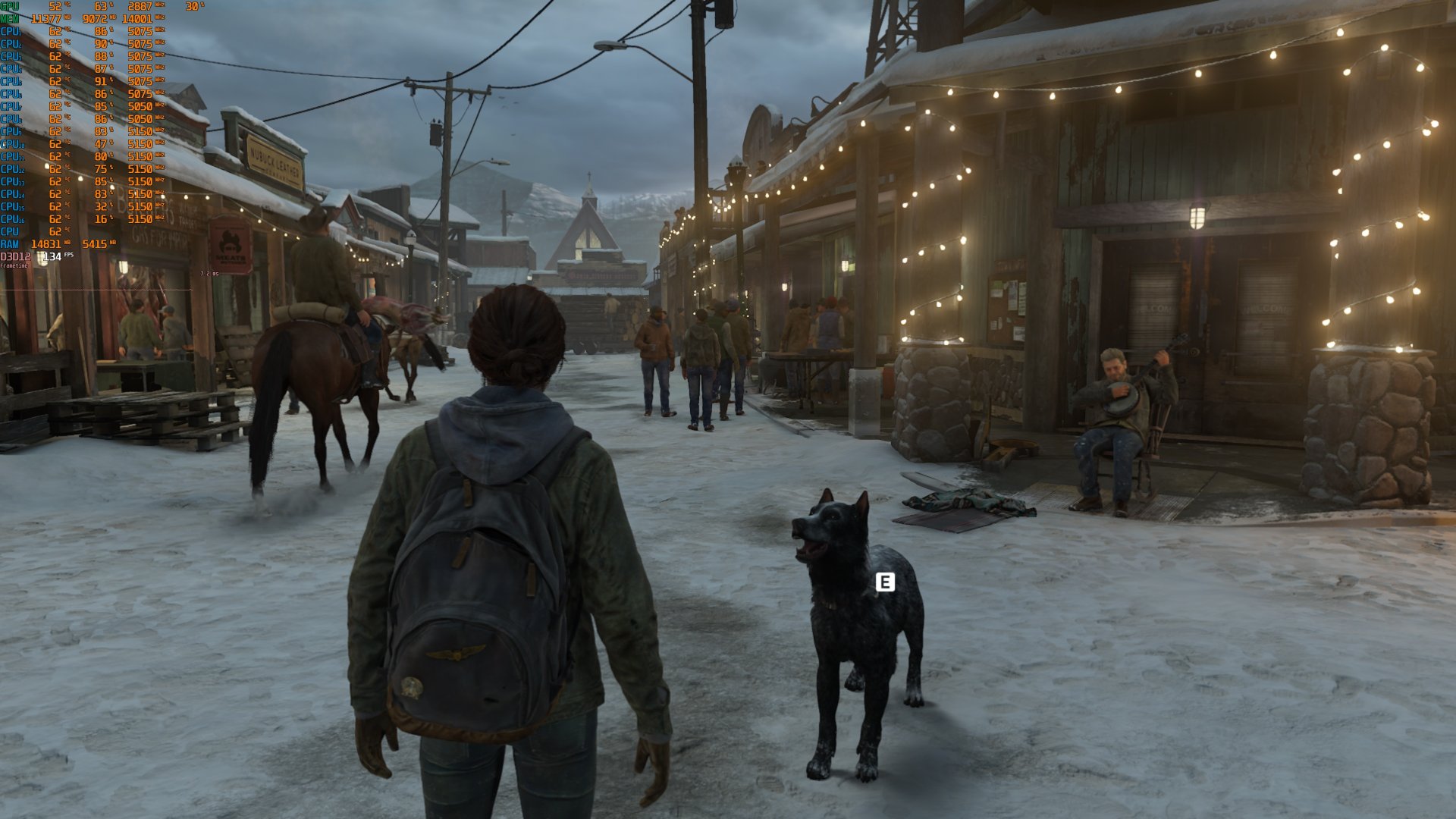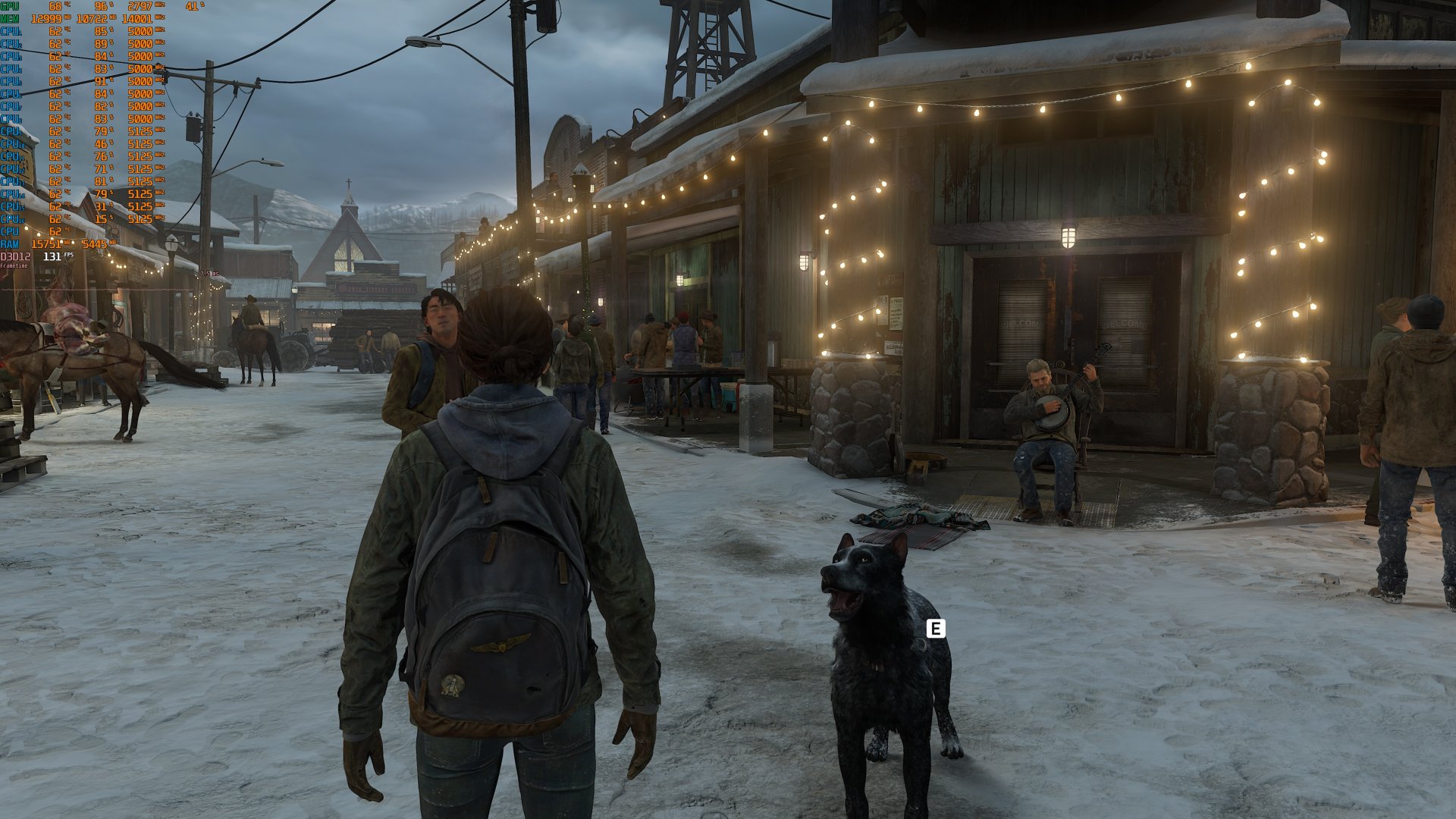Nixxes has just released Patch 1.1 Hotfix for the PC version of The Last of Us Part 2 Remastered. According to the team, this patch improves performance on PC when using Resizable BAR. So, let’s see whether those claims are true.
For our tests, I used an AMD Ryzen 9 7950X3D, 32GB of DDR5 at 6000Mhz, and NVIDIA’s GeForce RTX 5090. I also used Windows 10 64-bit and the GeForce 572.83 driver.
At 1080p/Ultra, I did not see any performance gains at all in Jackson City at 1080p. As you can see below, in this CPU-bound area, Resizable BAR does not do anything at all. At least when using a low resolution.
Things got more interesting once I increased my resolution to 4K. At Native 4K/Ultra Settings, I was getting a minimum of 117FPS and an average of 132FPS. Previously, that very same scene ran with 110/123FPS. So, we’re looking at a 6-7% free performance boost. Pretty cool.
Alongside this performance boost, Patch 1.1 Hotfix pack improvements to autosaving when the Windows Documents folder is located on OneDrive or a similar cloud service.
So there you have it. With this update, you will no longer have to disable Resizable BAR from your BIOS. So, kudos to Nixxes for resolving it.
Like always, Steam will download this update the next time you launch its client. Below you can also find its complete changelog.
Stay tuned for more!
The Last of Us Part 2 Remastered Patch 1.1 Hotfix Release Notes
- Improvements to autosaving when the Windows Documents folder is located on OneDrive or a similar cloud service.
- Performance optimizations when Resizable BAR is enabled.

John is the founder and Editor in Chief at DSOGaming. He is a PC gaming fan and highly supports the modding and indie communities. Before creating DSOGaming, John worked on numerous gaming websites. While he is a die-hard PC gamer, his gaming roots can be found on consoles. John loved – and still does – the 16-bit consoles, and considers SNES to be one of the best consoles. Still, the PC platform won him over consoles. That was mainly due to 3DFX and its iconic dedicated 3D accelerator graphics card, Voodoo 2. John has also written a higher degree thesis on the “The Evolution of PC graphics cards.”
Contact: Email



